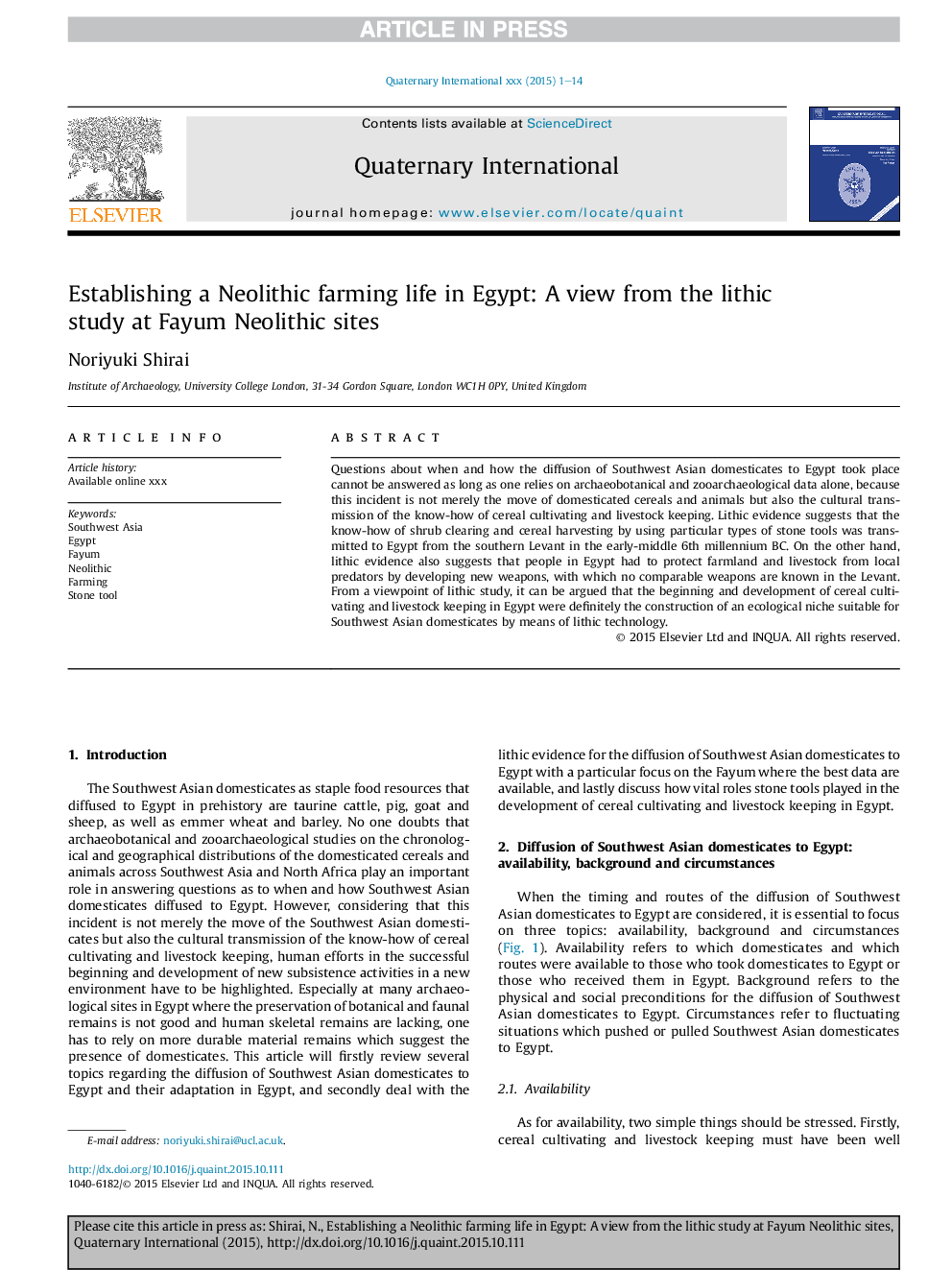| Article ID | Journal | Published Year | Pages | File Type |
|---|---|---|---|---|
| 5114204 | Quaternary International | 2016 | 14 Pages |
Abstract
Questions about when and how the diffusion of Southwest Asian domesticates to Egypt took place cannot be answered as long as one relies on archaeobotanical and zooarchaeological data alone, because this incident is not merely the move of domesticated cereals and animals but also the cultural transmission of the know-how of cereal cultivating and livestock keeping. Lithic evidence suggests that the know-how of shrub clearing and cereal harvesting by using particular types of stone tools was transmitted to Egypt from the southern Levant in the early-middle 6th millennium BC. On the other hand, lithic evidence also suggests that people in Egypt had to protect farmland and livestock from local predators by developing new weapons, with which no comparable weapons are known in the Levant. From a viewpoint of lithic study, it can be argued that the beginning and development of cereal cultivating and livestock keeping in Egypt were definitely the construction of an ecological niche suitable for Southwest Asian domesticates by means of lithic technology.
Related Topics
Physical Sciences and Engineering
Earth and Planetary Sciences
Geology
Authors
Noriyuki Shirai,
